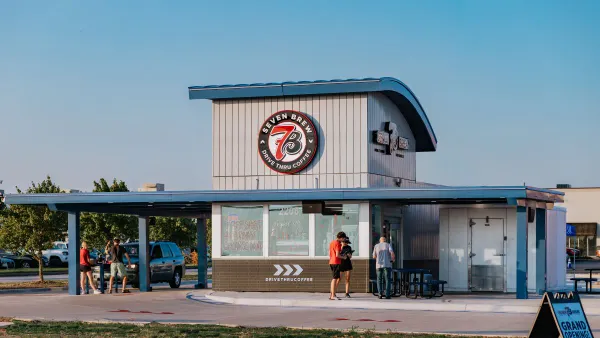Dive Brief:
- Outback Steakhouse parent company Bloomin’ Brands is under pressure from activist investor Barington Capital Group to make serious changes, including spinning off its Bonefish Grill, Carrabba’s Italian Grill and Fleming’s Prime Steakhouse & Wine Bar concepts, according to Bloomberg. The private equity firm, which owns about 0.6% of Bloomin' Brands common shares, also wants the company to appoint an independent chairman.
- The investor group, which is run by James Mitarotonda, blames CEO Elizabeth Smith for Bloomin’ Brands’ underperformance. “It is our belief that the company’s disappointing share price performance is primarily the result of poor operating execution and poor strategic and capital allocation decisions under Ms. Smith’s leadership,” Mitarontonda wrote.
- Bloomin’ Brands responded to Barington’s letter, noting that “since March 2017, the company has had seven discussions with Barington to better understand its views and suggestions.” Moreover, Jim Craigie, the director of Bloomin’ Brands’ board of directors, said the board welcomes “dialogue and constructive input,” and that it “fully supports" the management team and its efforts.
Dive Insight:
CEO Elizabeth Smith said in a statement that the company is making progress in a number of metrics, including food quality, service and ambience and, as a result, has experienced an increase in sales and share throughout the past three quarters.
However, those positive sales have come mostly from Outback Steakhouse’s performance alone. During Q2, for example, Outback’s comp sales were up 4%, while Bonefish Grill was up 1.5%, Fleming’s Prime Steakhouse & Wine Bar was up just 0.3% and Carrabba’s Italian Grill was down 0.6%. These results are similar to Q1 and Q4 2017 results.
A quick glance at the company’s most recent earnings reports does, indeed, indicate that Outback is its golden child. Barington Capital argues that if Bloomin’ Brands were to spin off its smaller restaurant concepts and allow its flagship Outback Steakhouse brand to operate independently, it would double the company’s shares. They are currently worth around $20.
Bloomin’ Brands' struggles are part of a larger narrative in the restaurant industry, where the casual dining segment has struggled for the past decade as it grapples with changing consumer preferences for speed and convenience, as well as significant headwinds from higher labor costs (5% wage inflation). The company has managed to rein in some of this hemorrhaging by reducing overhead, investing in digital initiatives and enhancing its growing off-premise business to better level the playing field with the hot fast casual concepts. This is, perhaps, what makes the company particularly attractive to an activist investor.
The restaurant industry, in particular, has been of interest to activist investors recently, according to Nation’s Restaurant News, which writes these players “have nowhere else to put their money as the Internet ravages traditional retail sectors.” For example, in the past month alone, activist investors have targeted Starbucks and Papa John’s.
Although paring the company down might look good on paper, the industry overall is consolidating at a staggering pace as companies look to diversify and innovate in order to better insulate themselves from an increasingly competitive marketplace. It’s also worth noting that Bloomin’ Brands’ board released a statement fully supporting the company’s leadership and strategy, and that the company’s Q3 earnings will be released Oct. 29, so next week will provide a better picture of whether Barington’s “disappointment” is likely to grow or not.










